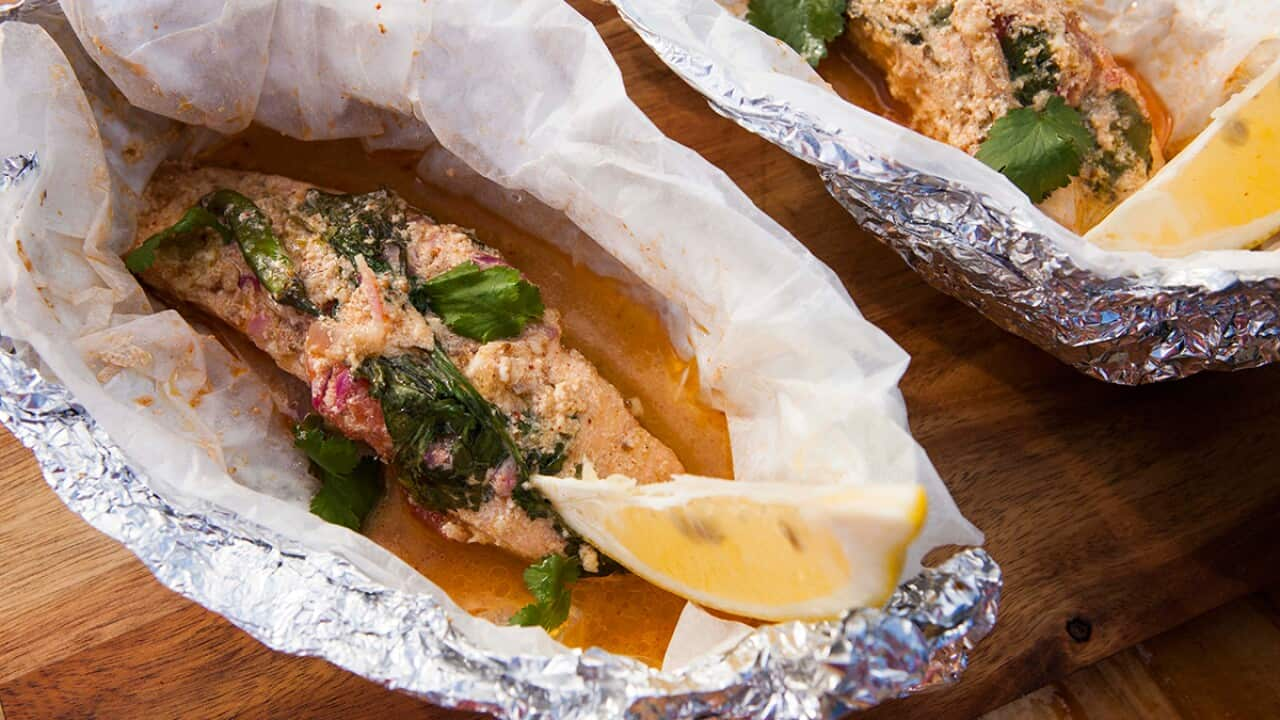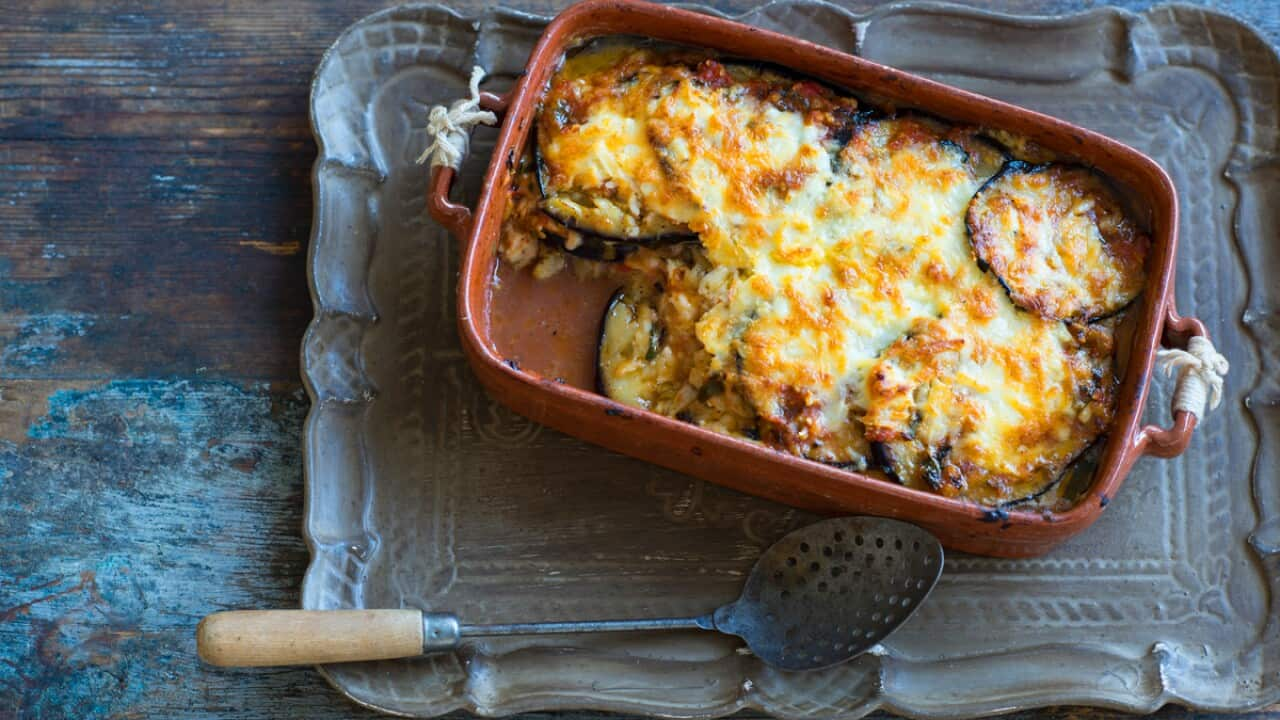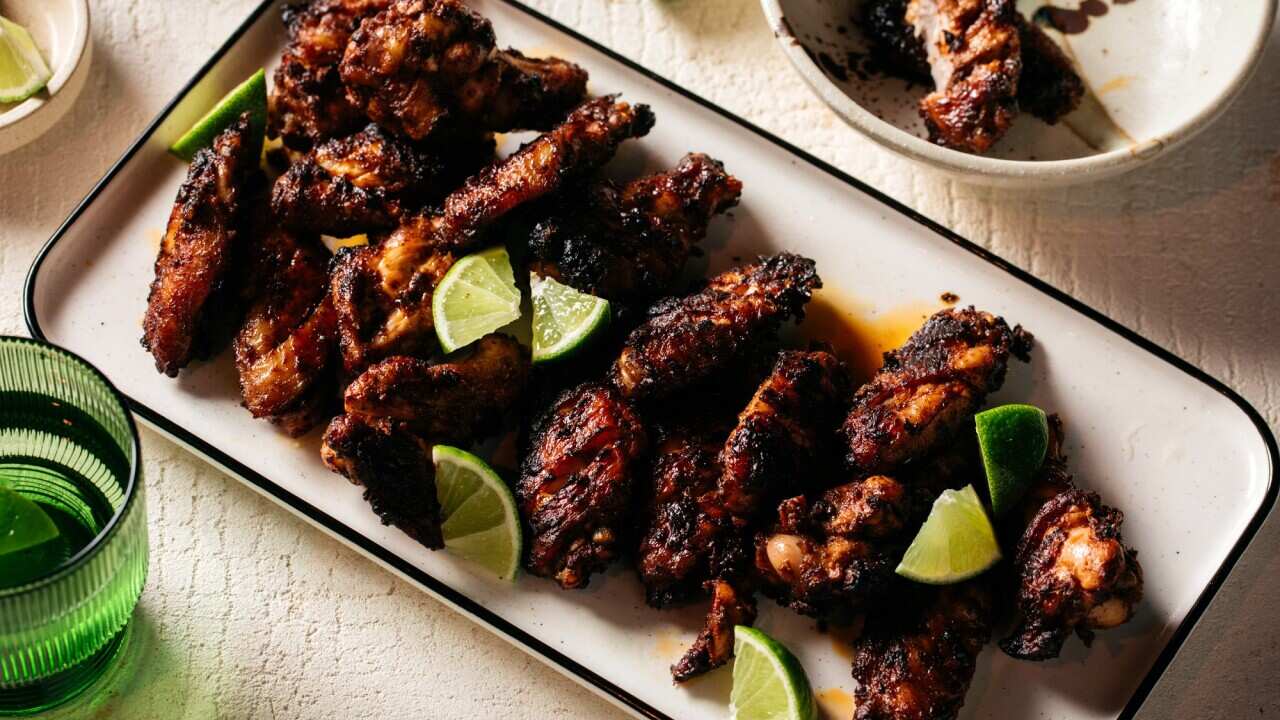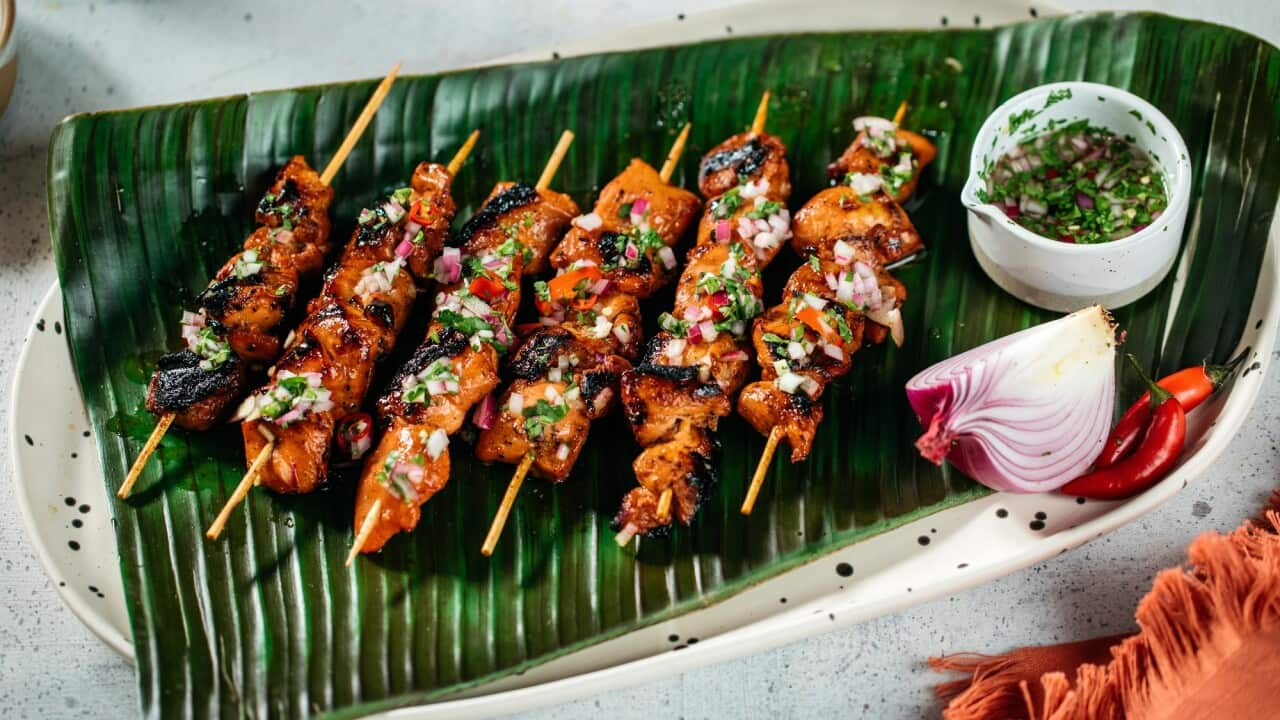The western Sydney suburb of Lakemba is home to originating from Pakistan, Bangladesh, Palestine, Syria, Lebanon, Turkey, and many more exotic lands throughout the world. But the usually busy community goes to a standstill during Ramadan, the holy Muslim month of fasting and penance.
Well, that is until the sun sets.
During Ramadan, the markets and many shops of Lakemba are closed throughout the day, even newsagents and clothing boutiques that don’t sell food. But once night falls, the suburb's main thoroughfare of Haldon Street turns into a Middle Eastern souk bustling with bright colours, a sea of languages, happy faces and exotic aromas. As you walk down the street, the first thing that hits you is the smell. The air is seasoned with spices of cardamom, saffron, paprika, and cinnamon. And roasted nuts and seeds are sprinkled on every edible surface, both savoury and sweet.
As you walk down the street, the first thing that hits you is the smell. The air is seasoned with spices of cardamom, saffron, paprika, and cinnamon. And roasted nuts and seeds are sprinkled on every edible surface, both savoury and sweet.

A man holding a lively conversation with Lebanese-Australian vendors during the holy month of Ramadan. (Supplied) Source: Supplied
To the people of Lakemba, these markets are a low-key get-together for the suburb's Muslim community. The event is only publicised by word-of-mouth.
Yet its vibe is one of a vibrant and busy halal street food fair with vendors making fresh tandoori, grilled kebabs, barbequed corn, fresh carrot juice, teas and espresso, and scores of traditional sweets right before your eyes.
I headed out to explore the streets with three other friends, one who was local to the area and had scouted the best Lakemba had to offer. Noticing the sheer number of food stalls on display, we decided to experience the evening one shared plate at a time, lest we prematurely stuffed ourselves.
Our first stop was a tandoori kebab stall. The Pakistani man running the outfit started speaking to me in Urdu, assuming I’d understand. For context, I’m an Indian-Australian so appearance-wise his assumption was fair enough. But unfortunately my family speaks Tamil, plus we’re Hindu so I know little about Ramadan first-hand which might have helped decipher what he was saying. Still, I managed to respond in broken Hindi, thanks to my obsession with Bollywood. He smiled, appreciating the effort.
That was just one of many examples of how conversations on the street were a melange of several tongues. Many passers-by swapped in and out of English Urdu, and Arabic. It was fascinating to listen to.

Tandoori chicken kebabs from a Pakistani-Australian stall. (Supplied) Source: Supplied
More tandoori?

Tandoori chicken
The Pakistani man offered us a sample of his tandoori chicken kebabs. My friends told me it was the most tender chicken they'd ever tasted. They bought a skewer of it to share amongst them.
Another Pakistani stall, located just outside a subcontinental grocery, was preparing meat-stuffed paratha bread. I'd had parathas before but always stuffed with potato, onion, or horseradish. But this must have been a more Nawabi (the Muslim emperors of Northern Indian and Persia) take on the North Indian / North Subcontinental fried bread.

Vendor preparing hot parathas (stuffed bread) for customers. (Supplied) Source: Supplied
Mouthwatering paratha recipes

Smoked trout-stuffed paratha
There was a lot of meat on display. And as our squad's resident vegetarian, I was resigned to the fact that most of my food options tonight would be dessert.
But eventually, we did stumble upon a savoury dish suitable for vegetarians! Called, a Lebanese-style sesame-encrusted bagel. This particular bagel was filled with grilled haloumi - like a toastie! So simple. Yet so scrumptious.
Try making ka'ak at home!

Sesame kaak
There were cobs of corn on display too, the kind of energy food that sustains you and is ideal for when you've just broken your fast. The barbequed corn came seasoned with salt, chilli and lemon juice.
What touched me the most at this stall was how when our order was ready, the gentleman serving me also called me "sister"; it was a token of their culture and a sign of respect. The cultural sentiment that all women are your sister and all men are your brothers clearly hold this community together.

Lebanese-Australian stall preparing kaak (a traditional haloumi toastie) and barbequed corn on the cob. (Supplied) Source: Supplied
Say hello to haloumi

Honey, thyme and lemon haloumi with buckwheat
The Lebanese stall also served camel burgers, which are popular here in Lakemba. Prepared in a similar style to beef, the camel burger was dish my friends couldn't get enough of. We now needed something to drink, to wash our hearty burger and ka'ak down. Lo and behold, a stall of freshly prepared carrot juice was just around the corner.
We now needed something to drink, to wash our hearty burger and ka'ak down. Lo and behold, a stall of freshly prepared carrot juice was just around the corner.

My friends gorging on camel burgers and beef parathas. (Supplied) Source: Supplied
Carrot juice, one of the vendors told me, was a popular drink during Ramadan because each glassful was full of vitamins and minerals great for replenishing someone who'd lost energy while fasting. Though at this stage we were stuffed to the brim, we still had room in our tummies for a little dessert. And of the many sweet treats on display, one melted cheese dish caught my eye.
Though at this stage we were stuffed to the brim, we still had room in our tummies for a little dessert. And of the many sweet treats on display, one melted cheese dish caught my eye. Called knafeh, this traditional Palestinian dessert was made of melted cheese, topped with a thin semolina cake, pistachios, cardamon, saffron and ladles of syrup.
Called knafeh, this traditional Palestinian dessert was made of melted cheese, topped with a thin semolina cake, pistachios, cardamon, saffron and ladles of syrup.

One of several stalls selling fresh carrot juice and orange juice. (Supplied) Source: Supplied

Me displaying the Palestinian dessert knafeh in all its cheesy glory. (Supplied) Source: Supplied
Make it at home

Sweet cheese pastry (knafeh)
It was getting late, so after buying a 'few' more desserts for the road, we headed back to my friend's place to rest and admire our glorious spread.

A photo of our spread. It looked infinitely more impressive before we ate half of it. (Supplied) Source: Supplied
Some noteworthy treats were a Turkish custard-filled cake called basbousa, a Syrian churro-like doughnut called mushabbak, and most importantly this Egyptian baklava filled with cream. Apart from the delicious food and the good company, what made this street markets so endearing was how family-centric it all was. Large broods would walk the street dressed in their Sunday best, mothers pushed their babies in strollers as if taking a late-afternoon stroll, and the older children seemed excited to be up so late on a school night. Even the stalls were a family affair. Just take a look at this little boy marketing his family's ka'ak stall.
Apart from the delicious food and the good company, what made this street markets so endearing was how family-centric it all was. Large broods would walk the street dressed in their Sunday best, mothers pushed their babies in strollers as if taking a late-afternoon stroll, and the older children seemed excited to be up so late on a school night. Even the stalls were a family affair. Just take a look at this little boy marketing his family's ka'ak stall.

This Egyptian cream-filled baklava tasted like the love child of a cannoli and a macaroon. (Supplied) Source: Supplied
The Lakemba street markets will continue from 4pm-3am until July 6. Ramadan Mubarak!












